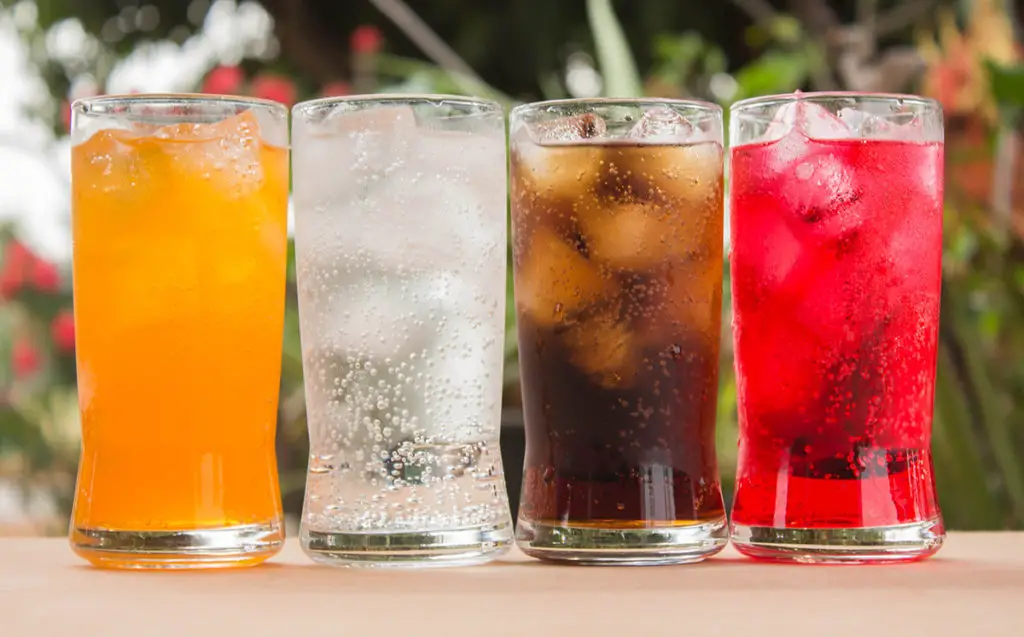Over half of the United States population consumes beer or soda on a regular basis. These two beverages are a staple to many American diets, but they’re not exactly the healthiest options.
Though beer can damage your internal organs when consumed excessively, soda is worse for your body than beer. This is because it contains toxic ingredients and high sugar levels that contribute to a poor diet and a low level of healthiness.
In the rest of this article, I’ll dive deeper into what makes both of these drinks so unhealthy.
Beer and Soda Are Equally Unhealthy
Nearly half of the American population consumes beer and soda on a daily basis, as up to 42% of adult drinkers in the U.S. consume beer habitually. On that same token, 1 in 2 adults drinks soda every day. Unfortunately, high consumption levels for both of these beverages can have long-lasting health effects, and one is more unhealthy than the other.
Soda is surprisingly more unhealthy than beer.
Frequent soda consumption can lead to a poor diet, which causes more overall deaths than the overindulgence of alcohol. While alcohol consumption causes the third-largest number of preventable deaths in the United States, poor diet is actually the second-largest, thanks to sugary synthetics like soda.
The Unhealthy Effects Of Soda
Soda is unhealthy because of added sugar, natural and artificial flavorings, and artificial colors.

BEER DROP: Boxes of beer from Award-winning microbreweries → Join The Club
Let’s take a look at how this can damage your health.
Soda Has Too Much Sugar
Although sugar is a naturally-occurring substance found in all foods with carbohydrates, added sugar is where things get tricky. Natural foods that contain carbohydrates, such as fruits and veggies, have additional health benefits that make them okay to consume.
However, the problem occurs with added sugar, which is a common component in processed foods.
Essentially, when a food manufacturer wants to make their product sweeter or last longer when stored, they add excessive amounts of sugar at levels that are harmful to your body. Soda happens to be one of the top sources of added sugar in the U.S.
To put this to scale, the average bottle of Coca-Cola contains over 16 tsp (5.9 g) of sugar. This is well beyond the recommended levels of daily sugar consumption. According to researchers at Harvard Health, excessive sugar intake can damage your heart health, increase your blood pressure, and raise inflammation levels in your body.
Sugar can also lower your immune health, and can negatively impact your body’s ability to fight off bacterial infections because it throws off bacteria-fighting cells in your immune system.
Natural and Artificial Flavorings in Soda: Both Are Bad for You
Though sugar isn’t the best for your health, it’s not the only bad ingredient in soda. Natural and artificial flavorings are common components in most processed foods, including soft drinks.
Flavorings are added to processed foods like soda to increase flavor or act as preservatives to the product. However, flavorings are often extracted using harsh chemical processes and contain toxic ingredients that damage your immune health.
These can lead to many harmful side effects, such as allergic reactions, nausea, headaches, vomiting, and the other debilitating consequences that come with a damaged immune system.
Despite what you might think, “natural flavors” aren’t necessarily natural or good for you.
In fact, natural flavors can be just as bad as artificial flavors. Though natural flavors are derived from a “natural source,” the extraction of these ingredients is often just the same as the processes used to create artificial flavors.
All flavoring, both natural and artificial, should be avoided as much as possible to maintain ideal levels of immune health.
Artificial Colors in Soda
Artificial colors are another common component in processed foods, especially soda.
Like flavoring, food coloring can damage your health because it contains harsh synthetic chemicals. In fact, some of the most common food dyes used today are even considered dangerous because of the long-term harm they can inflict.
This is because synthetic dyes contain harsh chemicals that damage your immune system.
When your immune system is down, it becomes more difficult for your body to fight against infections that can have long-lasting impacts on your health. Artificial colors are also linked to hyperactivity and other noticeable changes in behavior.
The Unhealthy Effects Of Beer
While poor diets cause more deaths than alcohol, beer isn’t that great for you since it contains additives, affects your brain, and your internal organs. Let’s talk more about the effects of beer on your body and immune system.

How Beer Affects the Brain
According to the NIAAA, alcohol can have unfavorable effects on the brain because it changes how our brain communicates with itself and the rest of our body.
When your brain’s communication pathways are thrown off, this means that you’ll have more challenges with regulating your mood, making clear decisions, and maintaining adequate coordination. This can put you and the people around you at a greater risk for accidents, injury, and the consequences of unsafe and aggravated behavior.
How Beer Affects Your Internal Organs
Excessive consumption of alcoholic beverages such as beer can have long-lasting impacts on your body, especially your internal organs. Regular alcohol consumption can raise your blood pressure so much that it puts you at greater risk of developing heart conditions.
It can even lead to heart failure.
Your heart isn’t the only organ affected by excessive drinking. When you consume too much beer over long periods of time, your liver and pancreas can become inflamed. Inflammation of these organs can cause steatosis, pancreatitis, several types of cancer, and overall organ failure.
Like Soda, Beer Also Contains Additives
Like soda and many other beverages out there, beer can also contain unhealthy additives such as added sugar, flavorings, and synthetic dyes. These components make your drink taste and look more appealing, but the long-lasting effects on your health are far from that.
Why You Should Rethink Your Beverages
You might be disappointed to discover just how unhealthy America’s favorite beverages are. Fortunately, there are many great-tasting drinks out there that are better for your body. Let’s take a closer look at a list of things you should avoid, so you can make choices that are right for you and your health needs.
What To Avoid in the Beverages You Consume
- Pesticides
- Genetically-modified ingredients
- Natural and artificial flavorings
- Added sugars
- Synthetic dyes
Conclusion
Beer and soda are not healthy beverages, and when consumed frequently, both can significantly impact your health and overall wellbeing. However, one is less healthy than the other.
Between beer and soda, soda is the least healthy option. Regular consumption of beer and soda can lead to a wide variety of damaging health effects that might make you want to rethink your beverage choices.
Next time you’re trying to choose between beer and soda, you may want to rethink your options.
